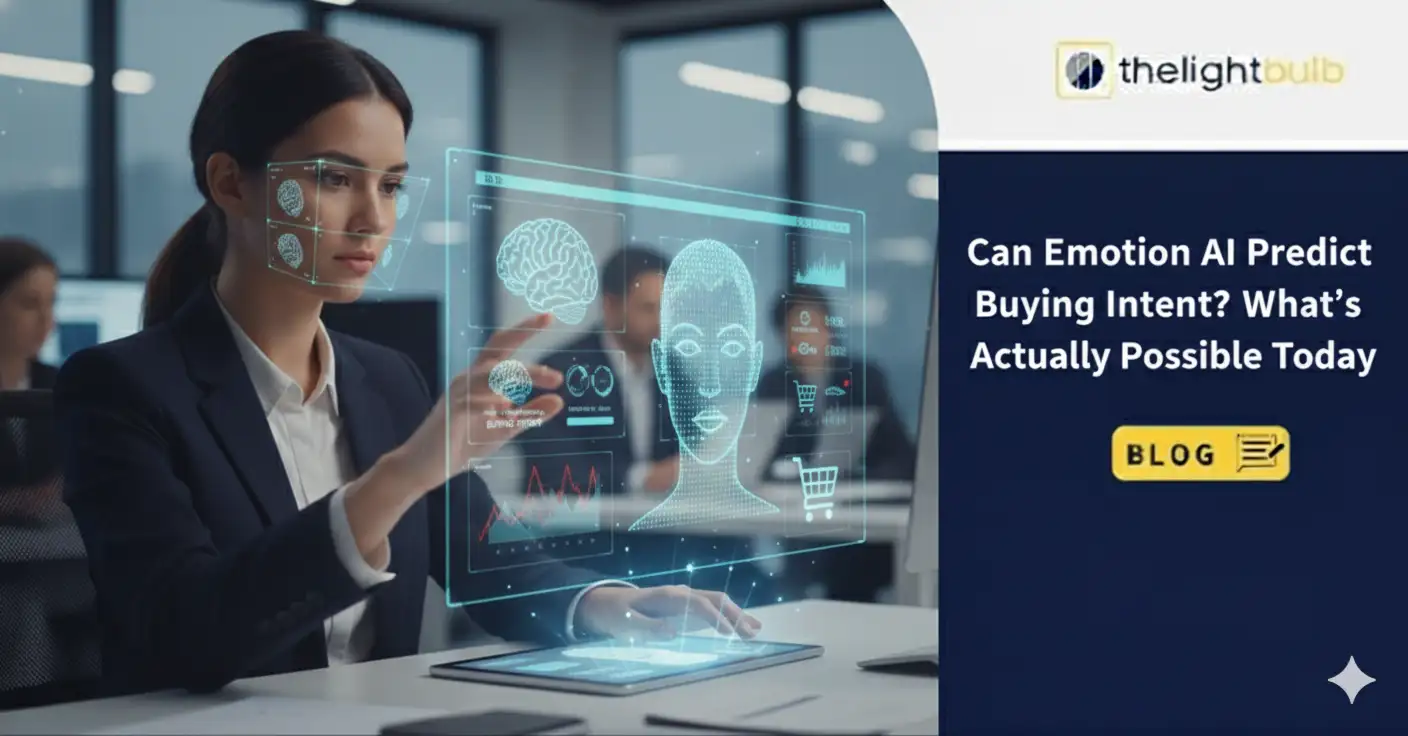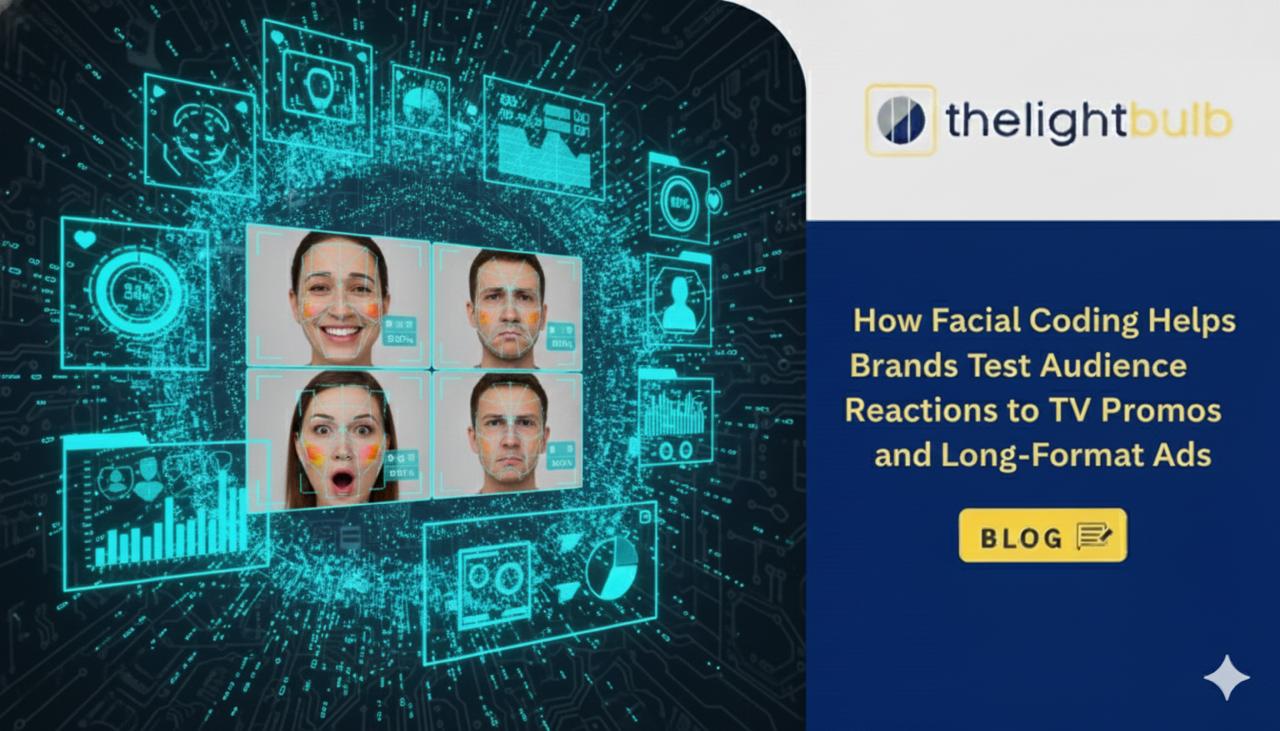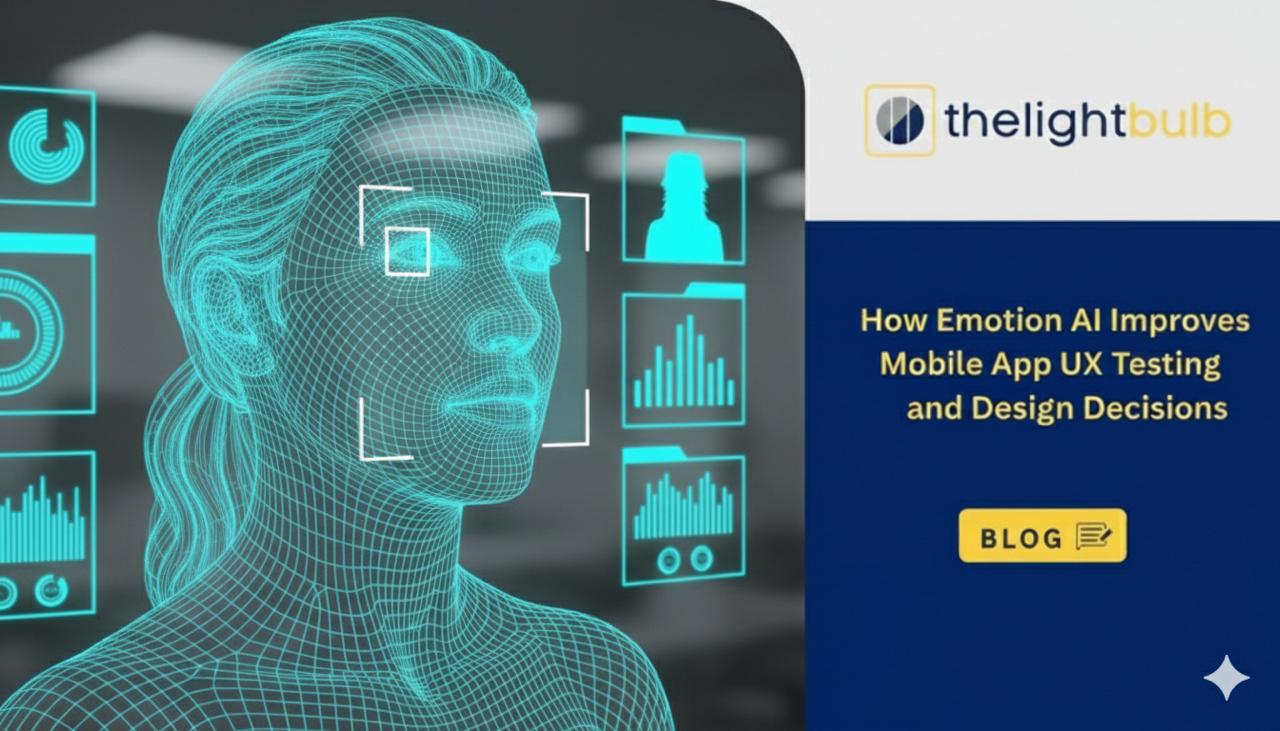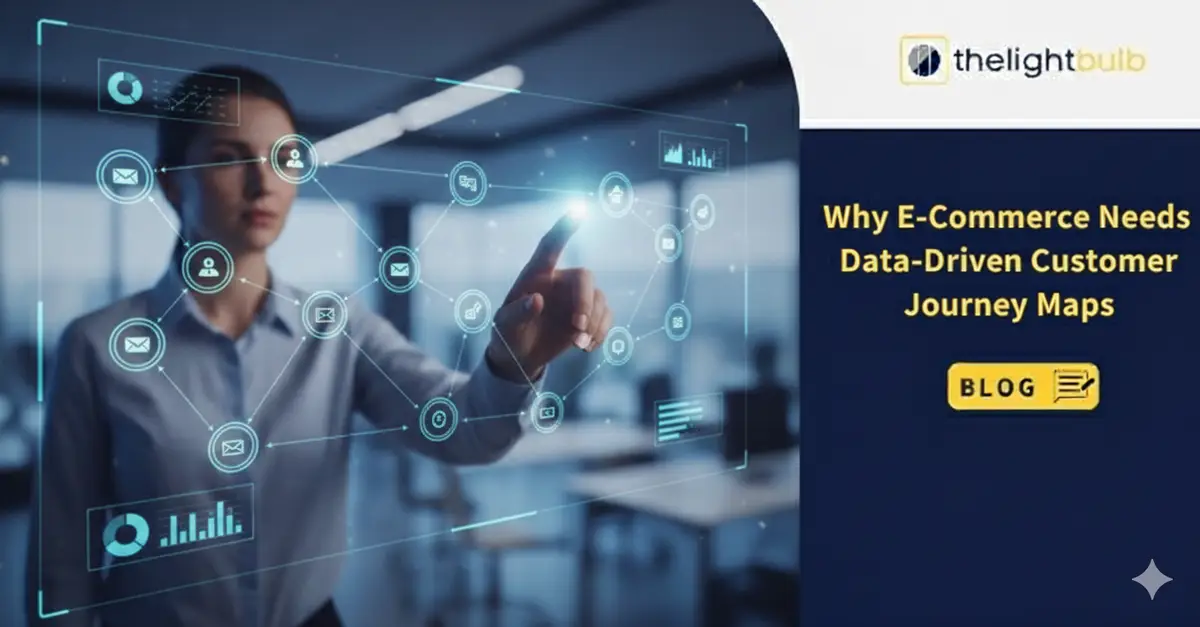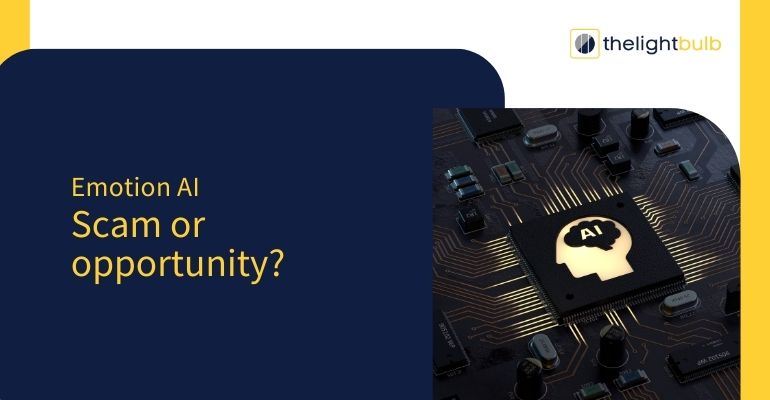
Can machines learn empathy and understand human emotions? It’s a question that has always fascinated the research scientists and tech enthusiasts over the decades. With the emerging prominence of Emotion AI, we’re finally getting closer to getting the answer.
Are machines capable enough to learn empathy and evaluate human emotions? This has been a question that has always fascinated tech enthusiasts and even research scientists. With the emergence of emotional AI, we’re finally close to getting the answer.
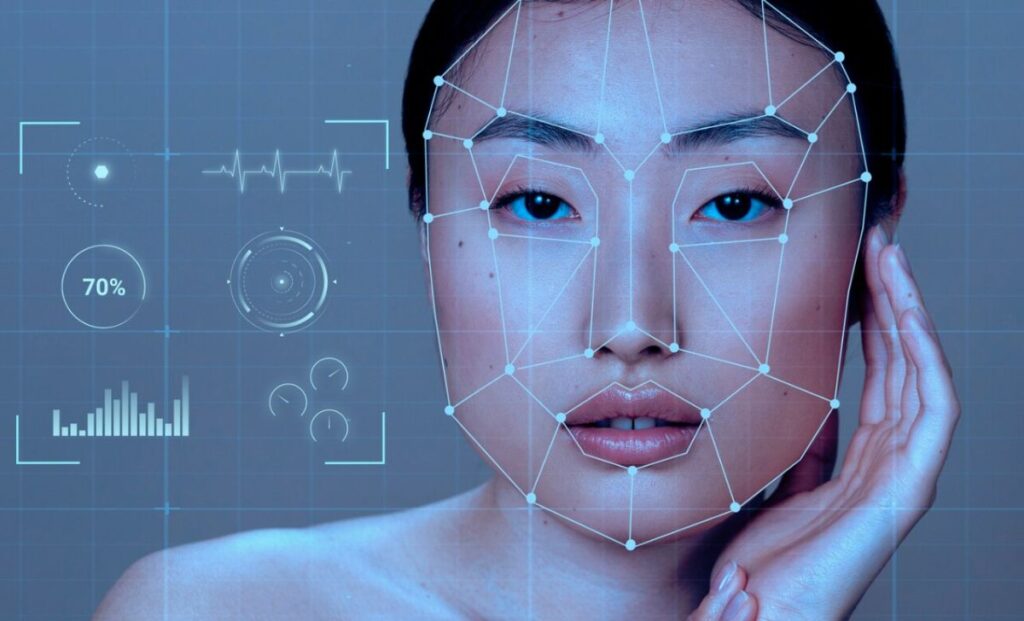
Emotional AI is a swiftly flourishing field that uses the concepts of artificial intelligence and machine learning to recognize, interpret, and answer human emotions. In this blog post, we’ll share everything you need to know about Emotion AI software.
What is Emotion AI Technology?
Emotion AI, sometimes called affective computing or artificial emotional intelligence, is a developing field in artificial intelligence that lets machines find and interpret human emotions. It involves evaluating human signals like facial expressions, body language, vocal tones, and even text to derive a person’s current emotional state.
How Accurate is Emotion AI Technology?
The accuracy of the Emotion AI technology is somewhat variable, however, we can refer to some key points for determining the accuracy of Emotion AI technology –
Current Accuracy: The most advanced Emotion AI software applications that focus mainly on facial expression are found to have typically achieved 75-80% accuracy approximately. The range seems to be high but is comparatively low when compared to human accuracy which is approximately 90%.
Focus Matters: The accuracy of Emotion AI is significantly dependent on specific emotions that it aims to identify. Simple emotions like happiness, sadness, or anger can be easily identified over more complex emotions like tiredness.
Data Biases: Emotion AI software applications are trained on datasets that can be biased. For example, AI software majorly trained on Western facial expressions might need help in accurately understanding emotions from faces belonging to a different cultural background.
Beyond Faces: While facial expressions are the main focus, integrating facial expressions with other aspects like vocal tone, text, and body language can significantly enhance the overall accuracy of Emotion AI software.
Pros and Cons of Emotion AI
No doubt Emotion AI possesses significant potential across various industrial fields. Thus, offering exciting opportunities and notable challenges. In this section, we’ll dig deep into the pros and cons of the Emotion AI technology that’ll help you in harnessing its capabilities at full potential.
Pros of Emotion AI
- Improved User Experience: Emotion AI are innovation that can effectively bridge the gap between humans and machines, making the interaction highly engaging. For example, in customer service, chatbots can easily adjust their replies by interpreting a customer’s mood, leading to an improved user experience.
- Deep Customer Insights: Businesses need customer insights to make important marketing and sales decisions. Organizations can leverage Emotion AI for doing market research by analyzing customer reactions to products, advertisements, or campaigns through aspects like voice tones or facial expressions.
- Better Patient Care: Emotion AI has influenced a variety of industries and health and medicine in not behind. In the field of digital health, Emotion AI optimizes patient engagement by letting apps detect a patient’s emotional state. As a result, medical businesses can foster more empathetic and supportive care.
- Early Mental Health Intervention: Nowadays, Emotion AI is benign used by psychology experts for mental health screening and monitoring the interaction to identify any signs of anxiety or depression and allow for earlier intervention.
Cons of Emotion AI
- Accuracy Limitations: As we had just discussed, even the most accurate form is not 100% accurate. With an accuracy of 75-80%, errors like misinterpretations, especially in the cases of complex emotions or cultural variations are bound to occur.
- Privacy Concerns: Collecting data based on human emotions might escalate certain privacy-related issues. Therefore, it is important to decide on ethical guidelines to ensure responsible installation.
- Misunderstanding Context: If you are aware that AI works on the data we feed for training purposes. Now emotions are a complex aspect and heavily context-influenced. Feeding it wrong or faulty data might lead AI systems misinterpreting data and produce undesired responses.
Industries Where Emotion AI is Instrumental
Emotion AI software applications have immense capabilities that influence various aspects of our lives simply by sharing deep insights into human behavior and emotions. However, there are many ethical concerns as the chances of breaching privacy are very high when dealing with human emotions.
But keeping the ethical challenges aside, the profits of emotional AI technology are widely recognized by business owners and some have already reaped the benefits.
The rapid growth of Emotion AI is not just a mere statement it’s a fact backed by numbers. According to a report by MarketsandMarkets, the global emotion detection and recognition market is expected to reach $42.9 billion by 2027, growing at an annual rate of 12.8% from 2022 to 2027.

In this section, let’s explore some of the greater industrial applications briefly –
1. Healthcare
Healthcare is the most promising example of emotional AI implementation and is especially accepted in the mental health field for diagnosis and treatment. Emotion AI offers healthcare professionals instruments to detect patterns of distress in a patient, as a result optimizing the treatment process. For example, an Emotion AI software application can efficiently identify signs of anxiety just by examining a patient’s speech and body language.
2. Marketing
Emotion AI has proven a boon for marketers, it provides tools to create campaigns that are exclusive and personalized marketing campaigns that are highly targeted. By examining customer emotions, marketers can create test cases for the product, tailor marketing copies, and much more that are likely to resonate with prospects. For instance, Emotion AI can come into play once users have bought and used your products for evaluating customer reactions.
3. Automotive
Surprised? Well yes Emotion AI has deep roots gradually strengthening in the automotive industry. Automobiles can be developed and designed to leverage Emotion AI to boost driving experiences and improve safety. In autonomous vehicles, Emotion AI software monitors a passenger’s emotional situation and offers responses when in a situation of a road emergency.
4. Gaming
Gaming is probably the biggest industry that has been heavily influenced by different models of AI such as the generative AI model, the foundation AI model, and the emotion AI model. Game developers use the aspects of emotional AI to create an immersive gaming experience for users by judging the recent emotional state of the players.
5. Robotics
This is one of the underrated industries where Emotional AI usage is at its peak, robotics specially developing social robots. Social robots interact with humans with a natural and empathetic approach. They serve as a replacement for many human roles such as companions, assistants, etc in various industrial situations including the aforementioned.
Connect Emotionally With Customers Like Never Before!
Well, this was all about Emotional AI softwares. We say the definition of Emotional AI technology, its accuracy, and the pros and cons of implementing Emotional AI for businesses. We also saw the industries that have witnessed the potential of Emotion AI software applications practically.
Businesses are well aware of the fact that Emotional AI has the power to enhance our understanding of human emotions and behavior. This results in deep customer insights and effective business strategies.
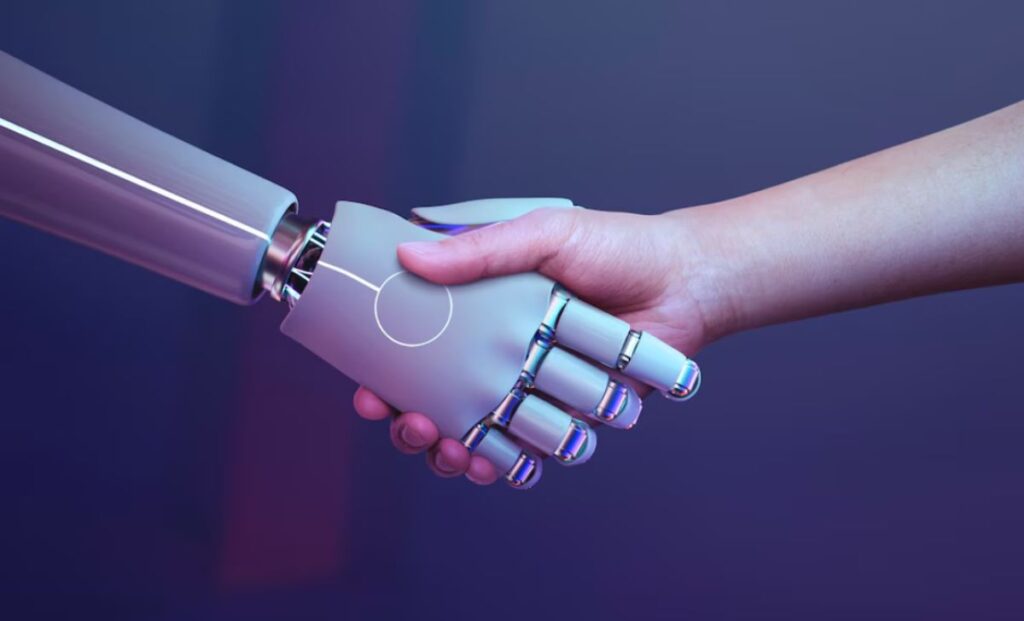
Overall, the market of emotion detection is growing at a rapid rate and the significant interest of businesses in the field is quite visible. However, the process of setting up a framework that accurately assesses human emotions and behavior is quite complex and might need professional interference. This is where the TheLighbulb.ai team comes into action. Thelightbulb is a ‘Full-stack Emotion AI’ platform that uses a combination of Visual AI (facial coding, & eye-tracking) and Conversational AI (speech transcription, text sentiment & audio tonality analysis) to generate real-time emotion AI and engagement analytics for digital user interactions.
Connect with the team today for a demo of the platform and learn to grow your business with Emotion AI.
